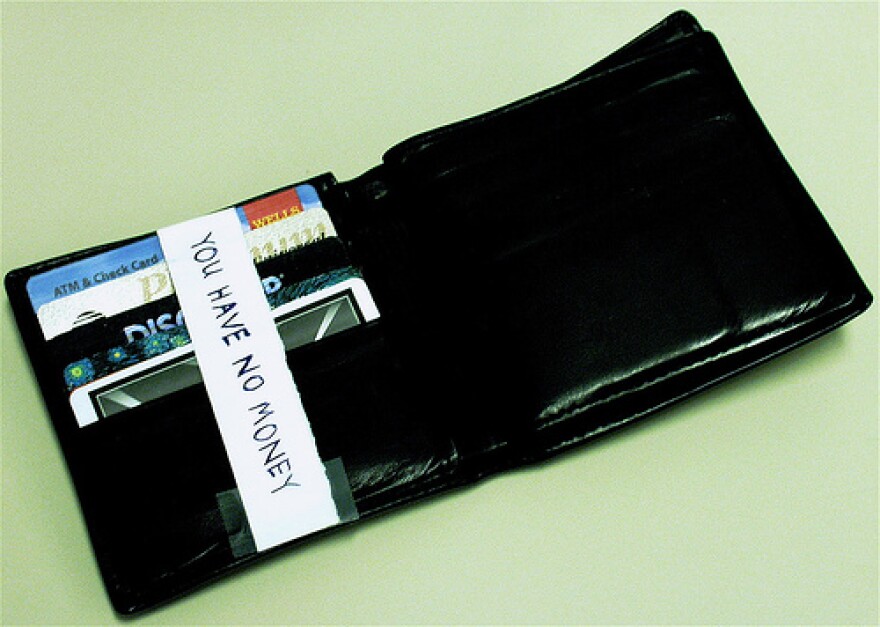State budget
The governor is facing down the task of balancing a state budget with a $9.2 billion deficit before a February 1 deadline. And he's planning to pair that task with implementing a spending cap. It's not going to be an easy road, reports the Democrat and Chronicle:
Budget experts offer a mixed take on the virtue of spending caps. Analysts who favor spending caps point to their ability to force legislators to prioritize money. But others believe a poorly constructed cap can have unintended consequences and further complicate a state's fiscal woes. Thirty states have some form of a spending cap in place, either through statutory law or with a constitutional amendment, according to the Citizens Budget Commission in New York City.
Cuomo's spending cap could mean a big consolidation push for many school districts, reports the Times Union:
District officials say they now have little wiggle room, and a tax cap might prevent them from meeting their legally obligated contributions to employee pensions and benefits, much less support existing programs and initiatives. And it would be a harder hit for poor districts, which rely more heavily on state aid. Without accompanying mandate relief, such as reduced pension contributions and a wage freeze, a cap could further devastate struggling school districts and force them to run out of money within the next two years, said Richard Timbs, executive director of the Statewide School Finance Consortium, an advocacy group for about a third of New York's 700 school districts.
Meanwhile the governor is turning to campaign supporters to back him up in his budget fight, reports Gannett's Albany bureau. He sent a letter last week soliciting more funds to add to the $4.9 million that remains in his campaign coffers.
And the Press & Sun-Bulletin has a piece that reports that New York's not alone in its quest to straighten out its finances:
In New Jersey, Gov. Chris Christie skipped a $3.1 billion payment to the state's pension system in a push to cut benefits for public workers, while proposing higher employee contributions and a boost in the retirement age from 62 to 65. In Illinois, lawmakers voted for a dramatic 66 percent hike in personal income tax, from 3 percent to 5 percent, in a bid to resolve a $15 billion deficit, which amounts to more than half of the state's entire general fund. The tax increase will be coupled with strict 2 percent limits on spending growth.
The article is a good survey of the challenges that most states are facing - definitely worth checking out.
Killer app
The Buffalo News has a look at ordinary people who develop "apps" for smartphones in the hopes of building the next big thing. The piece profiles computer programmer and mother of two, Kathryn Lahrs:
Her latest app, released Wednesday, is "Streaking." People trying to quit smoking, for example, mark cigarette-free days in the app, which tracks current and longest-ever streaks and tries to motivate people to keep to their goals. The app's three reviews so far include one from Lahrs' mother, who not surprisingly gives the app five stars out of five.
Military contracts
An Endicott company has gotten a $1.5 million contract from the Navy to create 3-D imaging for submarines, according to the Press & Sun-Bulletin.
And the Democrat and Chronicle has a profile of Vnomics, a firm spun out of research at the Rochester Institute of Technology. The vehicle monitoring software and sensors developed by Vnomics is going into 10,000 military vehicles.
The company started in 2008 with a staff of one and now employs 18 people. Based at RIT's Venture Creations business incubator, there are plans to move to larger quarters soon, [CEO David] Chauncey said. Nabil Nasr, co-inventor of the sensor package and director of RIT's Golisano Institute for Sustainability, said Vnomics is a prime example of the private-sector growth he hopes will spring from the institute. "We think there's tremendous opportunity to do something big in this area," he said.
Business expanding at Syracuse airport
A growing logistics company in Syracuse is moving into an old U.S. Airways facility at the airport, to expand its global moving business.
Mohawk’s annual lease payments will start at $29,838 and rise each year, topping off at $38,599 in 2024, the last year of its building lease, Reale said. After that, the company could purchase the building for $1 and pay $39,371 a year to lease the land under it, she said. The company has been growing rapidly. It recently added 11 new employees to its Syracuse operations and now employs 75 people, up from 43 in 2005. The company’s revenues have doubled over the past five years, [CEO Gar] Grannell said.
Deicing
A Syracuse man-turned-inventor wants to sell you a "Deicicler." What's that you ask? The Post-Standard reports:
[Edward] Fagan’s creation, a safety-painted, multi-toothed, flat attachment — roughly the size of a small-town phonebook, but made of steel — is designed to push, pull, prod or pulverize those stalactites of ice that decorate Upstate homes from December to March. The piece screws onto the end of any universally threaded broomstick, allowing a person to stand on the ground and take batting practice on icicles 12 feet high.
The paper reports that Fagan's put about $12,000 into developing the Deicicler. But he says ultimately the product is about safety:
Ice can fall, and [kids] can get hurt. ... Maybe this will keep somebody safe. Really, that’s all I want.”
Want Innovation Trail Mix delivered fresh to your reader every day? Subscribe to the feed.






